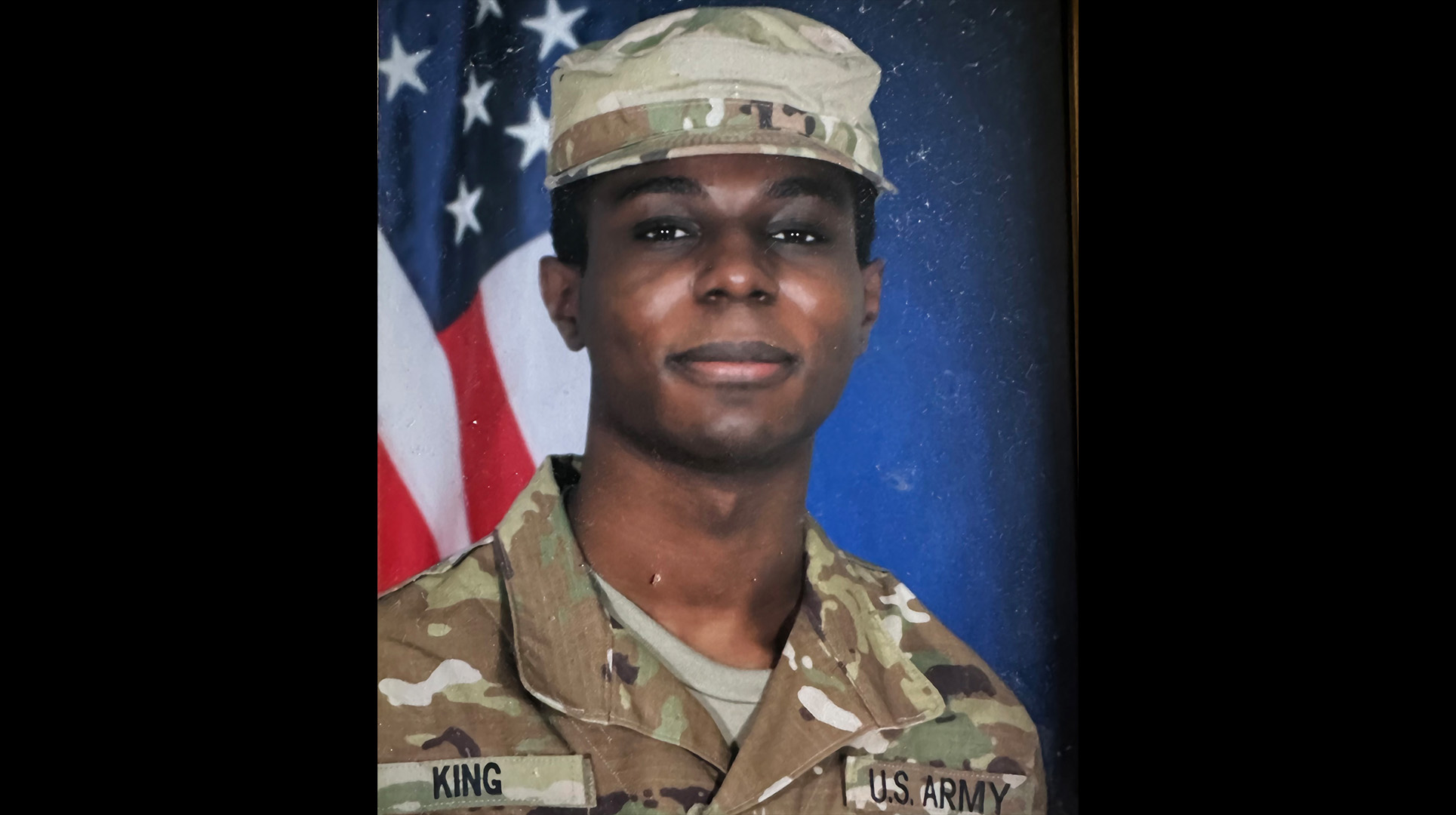

An Army soldier who crossed into North Korea in July is in U.S. custody, senior administration officials said Wednesday.
Private Travis King crossed the border from South Korea into North Korea “willfully and without authorization” through the Joint Security Area at Panmunjom on July 18, according to the U.S. Army. King crossed the border after skipping out on a flight to Fort Bliss, Texas, where he was set to face punishment on assault charges in Korea.
North Korean authorities transferred King to China with the help of the Swedish government. U.S. officials credited China with playing a “constructive role in facilitating his transfer out of the PRC.”
North Korean state media, KCNA, announced the decision to expel King on Wednesday ahead of U.S. officials’ comments. US officials said they had learned in early September through Swedish diplomats that North Korean officials wanted to release King.
U.S. officials said that no concessions had been made to North Korea for King’s release, and that King was “very happy” to return.
KCNA released a statement that claimed King had cited racism in the U.S. and the army as reasons for fleeing.
“Travis King confessed that he illegally intruded into the territory of the DPRK as he harbored ill feeling against inhuman maltreatment and racial discrimination within the U.S. army and was disillusioned about the unequal U.S. society,” KCNA said.
King had been considered AWOL by the Army since July 18, when he dashed across the border between South Korea and North Korea inside the Joint Security Area. The U.S. did not declare King to be a Prisoner of War, a formal status under U.S. laws that includes significant benefits and protocols for return.
Subscribe to Task & Purpose Today. Get the latest military news and culture in your inbox daily.
The soldier’s dash across the border came at the end of a troubled assignment to Korea. He was released on July 10 after two months in a South Korean jail on charges of assaulting a South Korean national. On the day he fled, King was scheduled to fly to Fort Bliss, Texas where he was expected to face judicial punishment.
However, officials later pieced together, after being taken to the airport, he skipped out on his flight, joining an “orientation” group that traveled to Panmunjom. There, he sprinted across the border, where he was quickly arrested by North Korean troops.
Panmunjom is home to the Joint Security Area (JSA), an 800-meter-wide complex of buildings along the Korean Demilitarized Zone (DMZ) overseen by the United Nations Command which is used for diplomatic purposes. The DMZ separates South Korea from North Korea, which is also known as the Democratic People’s Republic of Korea, or DPRK.
U.S. servicemembers crossing into North Korea is rare but not unheard of. More than 20 US soldiers chose to stay in North Korea after the initial armistice that ended the fighting of the Korean War but did not actually end the conflict. Six more were known to have crossed in the decades since.
In 1962, two soldiers — Pvt. Larry Abshier and James Dresnok — crossed into North Korea. Both had been facing punishment for misconduct.
“I was fed up with my childhood, my marriage, my military life, everything,” Dresnok said in the 2006 documentary Crossing the Line. “There’s only one place to go.”
Though there are nearly no direct ties between the U.S. and North Korean governments, U.S. officials said they have been reaching out to the DPRK since King crossed over, using multiple channels to ascertain King’s welfare.
“The United States government remains very open to the possibility of diplomacy with the DPRK,” an official said. “This incident demonstrates that keeping lines of communication open, even when ties are strained, is a really important thing to do and can deliver results.”
The latest on Task & Purpose
- 101st and 82nd Airborne Division soldiers deploying to Eastern Europe
- Have you seen me? All the best ‘Missing F-35’ memes
- Marine Corps searching for F-35 after pilot ejects in South Carolina
- Senate bypasses Tuberville on Joint Chief nominations for Brown, George
- Search for missing Marine F-35B finds debris field